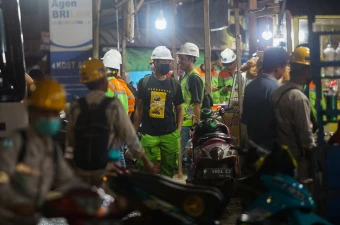Qatar one of the richest countries in the world could choose to change. Instead Qatar opted to deploy its economic power to shore up its slavery system for yet another six months.
Qatar has been given until November to reform its kafala system of modern slavery and bring its labour laws into line with international standards, after a decision of the International Labour Organization’s Governing Body.
Government blocs from Asia, Africa and Latin America refused to back calls for immediate action by worker and employer representatives. EU/Nordic governments and the USA supported the worker and employer position.
According to Sharan Burrow, General Secretary of the International Trade Union Confederation ITUC, “Qatar used its financial muscle over other governments to buy yet more time, after years of empty promises to bring its system of slave labour to an end.
Worst of all, governments from Asia and Africa, where most of the 1.5 million migrant workers in Qatar come from, refused to stand up for their own people. A further six-month delay will cost scores of lives as workers are forced to work through the incredibly hot summer months without basic protection and at the mercy of kafala employers.
“Qatar’s leaders knowingly choose to impose modern day slavery on migrant workers who are forced to borrow to pay for illegal recruitment fees, forced to live in squalor and paid poverty wages.
They have no effective means to have grievances settled or disputes resolved, no right to change jobs even to escape from abusive employers, and their bosses can force them to stay in the country for years by denying an exit visa.
Recent visits to Qatar’s notorious labour camps by trade union representatives revealed that wages for many are actually falling. More workers are imported into the country only to be left without a job, destitute and with no way home. The combined death rate of migrant workers from India and Nepal alone still stands at one every day.
Publication date 15 05 2015


